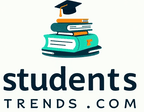STEAM education (Science, Technology, Engineering, Arts, and Mathematics) is leading this transformation by nurturing critical thinking, creativity, and problem-solving. Students gain critical cognitive abilities that equip them for problems in the real world when they study various subjects.

Why STEAM is Essential for Modern Learners
In contrast to traditional education, STEAM places a strong focus on integrated learning, which develops practical research and problem-solving skills and helps students develop into more adaptive and critical thinkers.
Key Points STEAM Develops Critical Thinking
Some key points are essential for the development of critical thinking.
Encourages Active Inquiry
Students learn by asking questions, experimenting, and analyzing outcomes.
Develops Strategic Problem-Solving
Students how to think logically and devise structured solutions.
Connects Knowledge Across Subjects
students broaden their perspectives and apply diverse problem-solving techniques.
Promotes Effective Teamwork and Communication
STEAM projects improve idea-sharing, cooperation, and the ability to express solutions clearly.
Builds Resilience and Adaptability
Learning through experimentation fosters persistence, critical evaluation, and flexibility in thinking.
Real-World Applications of STEAM Learning
Engineering and design:
Promotes creativity in problem-solving and logical reasoning.
AI and computer science:
foster the growth of analytical and computational thinking abilities.
Creative Arts & Innovation:
promotes original ideas and creative solutions by creative Arts.
Decision-making based on evidence is improved by scientific research and data interpretation.
STEAM’s Changing Function in Education
STEAM education guarantees that pupils have the abilities necessary to prosper in a world that is becoming more complicated by the day.

In conclusion
Promoting critical thinking, boosting creativity, and improving problem-solving abilities are all made possible by STEAM education. Students who adopt this strategy get the know-how required to succeed in a world that is changing quickly.

With more than 20 years of experience in higher education leadership, Ruth E Lugo has held prominent academic positions at a variety of institutions, concentrating on key areas such as student learning, faculty development, curriculum design, and institutional accreditation. As the Team Chair for eleven accreditation evaluations with the Middle States Commission on Higher Education, she has successfully directed thorough assessments that uphold academic standards and regulatory requirements. Furthermore, Ruth has provided consulting services to major international institutions, offering guidance on accreditation processes, strategic planning, and governance frameworks. Her extensive knowledge in assessment, budget management, and collective bargaining, combined with her commitment to academic excellence and institutional effectiveness, make Ruth E Lugo a passionate champion for shared governance in higher education.
